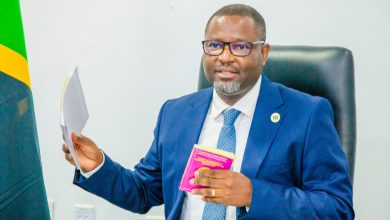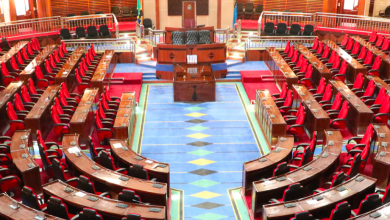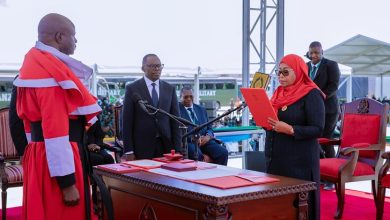Govt calls for supportive work environment in public institutions

COAST REGION: THE government has directed leaders of public institutions to establish supportive working environments that encourage productivity, creativity and innovation among employees in delivering their duties.
Minister of State in the Prime Minister’s Office (Labour, Youth, Employment and Persons with Disabilities), Mr Ridhiwani Kikwete, issued the directive on Wednesday during the official closing of a four day induction training for Chief Executives of Public Institutions, Government Agencies and State-Owned Enterprises (Group Two) at the Mwalimu Julius Nyerere Leadership School in Kibaha.
Mr Ridhiwani underscored the importance of effective human resource management in improving institutional performance.
“If you want to see better results, you must abandon authoritarian leadership styles and instead create a work environment that inspires employees to be dedicated, creative and more productive at every level,” said the Minister.
He, however, cautioned that a supportive environment should not be misconstrued as tolerating incompetence.
“I’m not saying you should go easy on underperformers. What I mean is that you must lead with purpose, professionalism and uphold the principles of good governance,” he stressed.
ALSO READ: The Dilemma of Deforestation: Can TZ balance economic growth and environmental conservation?
The Minister further emphasised the need for institutional heads to respect civil service ethics and ensure every staff member feels valued and empowered to contribute ideas that enhance service delivery and drive positive change.
According to him, this approach ensures that public institutions remain productive, adaptive to technological and operational shifts and responsive to national development needs.
He cited recent public sector reforms as a key driver of increased government returns, revealing that state investment in public institutions has now reached 86.29tri/-.
“This was clearly demonstrated in the 2024/25 financial year when President Samia Suluhu Hassan received a record 1.028tri/- in non-tax revenue from government agencies, state corporations and companies with partial government ownership,” he said, adding: “That amount is historic.
Our main goal is to ensure that the government’s investment in public institutions continues to generate sustainable value for the country.” On his part, Minister of State in the President’s Office (Planning and Investment), Prof Kitila Mkumbo, affirmed the government’s commitment through the Treasury Registrar’s Office to creating an ecosystem that supports President Samia’s vision of strong, capable institutions that accelerate national development.
Prof Mkumbo stressed the need for public institution leaders to strictly adhere to government guidelines and legal frameworks to reduce wasteful spending and strengthen public resource management.
Permanent Secretary in the President’s Office (Public Service Management), Mr Juma Mkomi, said the training, organised jointly by the Office of the Treasury Registrar and the UONGOZI Institute, was essential for improving leadership in public institutions.
The training brought together 114 institutional heads and focused on modern management techniques, accountability, transparency, and effective service delivery.
“It is my belief that these sessions will improve how human resources are managed,” said Mr Mkomi. “And remember, learning is continuous. Don’t be afraid to learn from your subordinates.
ALSO READ: Twende Butiama caravan boosts environmental awareness
Doing so will make your team feel included in the leadership process, encouraging greater commitment and efficiency.” For his part, Treasury Registrar, Mr Nehemiah Mchechu, said effective reform in public institutions demands strong leadership, innovation and collaboration between institutions, parent ministries, and other key government stakeholders.
He urged executives to continue learning and adjust their mindsets in line with evolving standards of good governance to help achieve long-term national development.
“We can only achieve meaningful results if our leadership is competent and efficient,” he said, adding that his Office will continue pushing for reforms to maximise institutional performance.





